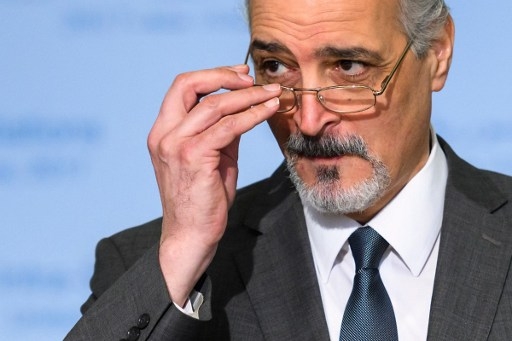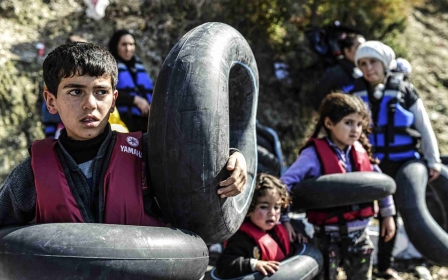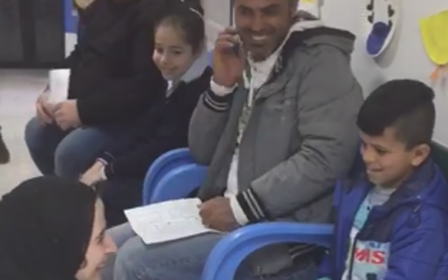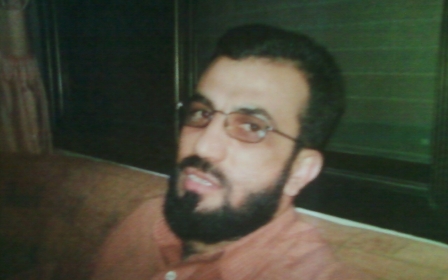Syria's warring sides trade insults after latest Geneva talks

Negotiators from Syria's government and opposition traded insults on Friday, calling each other "terrorists" and "adolescents" after an eight-day round of peace talks in Geneva.
The two sides do not meet directly but negotiate via U.N. mediator Staffan de Mistura, saving their liveliest invective for the TV cameras after each meeting with him.
Opposition negotiator Nasr al-Hariri said the "terrorist regime" of President Bashar al-Assad had refused to discuss political transition during the talks and said Assad was a war criminal who must step down in the name of peace.
"They are solely discussing their empty rhetoric about countering terrorism," Hariri told reporters, vowing there could be "no peace without justice."
"War crimes and crimes against humanity must not be an option for negotiations. From now, venues must be found for transitional justice to ensure holding the perpetrators accountable," he said.
Hariri said he was looking for a negotiating partner who put the interests of the Syrian people first, while his opposite number, the government's chief negotiator, Bashar al Jaafari, said he only wanted to negotiate with someone "patriotic".
Jaafari mocked the opposition delegation as "adolescents" who thought they were appearing on a television talent show such as "Arab Idol" or "The Voice", and were under the illusion that government would simply hand over the keys to the country.
"In fact they are tools, they are mercenaries in the hands of their lords, their operators, and it seems they have not received instructions from them, except instructions to continue supporting terrorism and to create havoc in these rounds."
Jaafari said his delegation had given de Mistura documents on all aspects of talks - on elections, constitution, reformed governance and countering terrorism - but the opposition had not responded.
Change of US tone on Assad
The Geneva talks, which began fitfully last year before being drowned out by the escalating war, were originally backed by the United States and Russia. While Russia is widely seen as holding the balance of power, the United States has backed away from its previous overt support for the rebels.
On Thursday, U.S. Ambassador to the U.N. Nikki Haley said the priority was no longer "getting Assad out".
However the British Defence Secretary Michael Fallon reiterated Friday that the UK did not see a long-term future in Syria for Assad. He was speaking during a joint news conference with U.S. Defense Secretary Jim Mattis.
Hariri said the United States remained a friend and there had been no "dramatic change", with the U.S. priority being to fight terrorism and limit also the influence of Iran.
Jaafari said Haley was new and needed time to "digest and metabolise" the reality of the Geneva talks and complementary ceasefire talks in Astana.
"The future of Syrians will be determined only by the Syrians, not by the U.S. or any other ambassador," he said.
New MEE newsletter: Jerusalem Dispatch
Sign up to get the latest insights and analysis on Israel-Palestine, alongside Turkey Unpacked and other MEE newsletters
Middle East Eye delivers independent and unrivalled coverage and analysis of the Middle East, North Africa and beyond. To learn more about republishing this content and the associated fees, please fill out this form. More about MEE can be found here.




